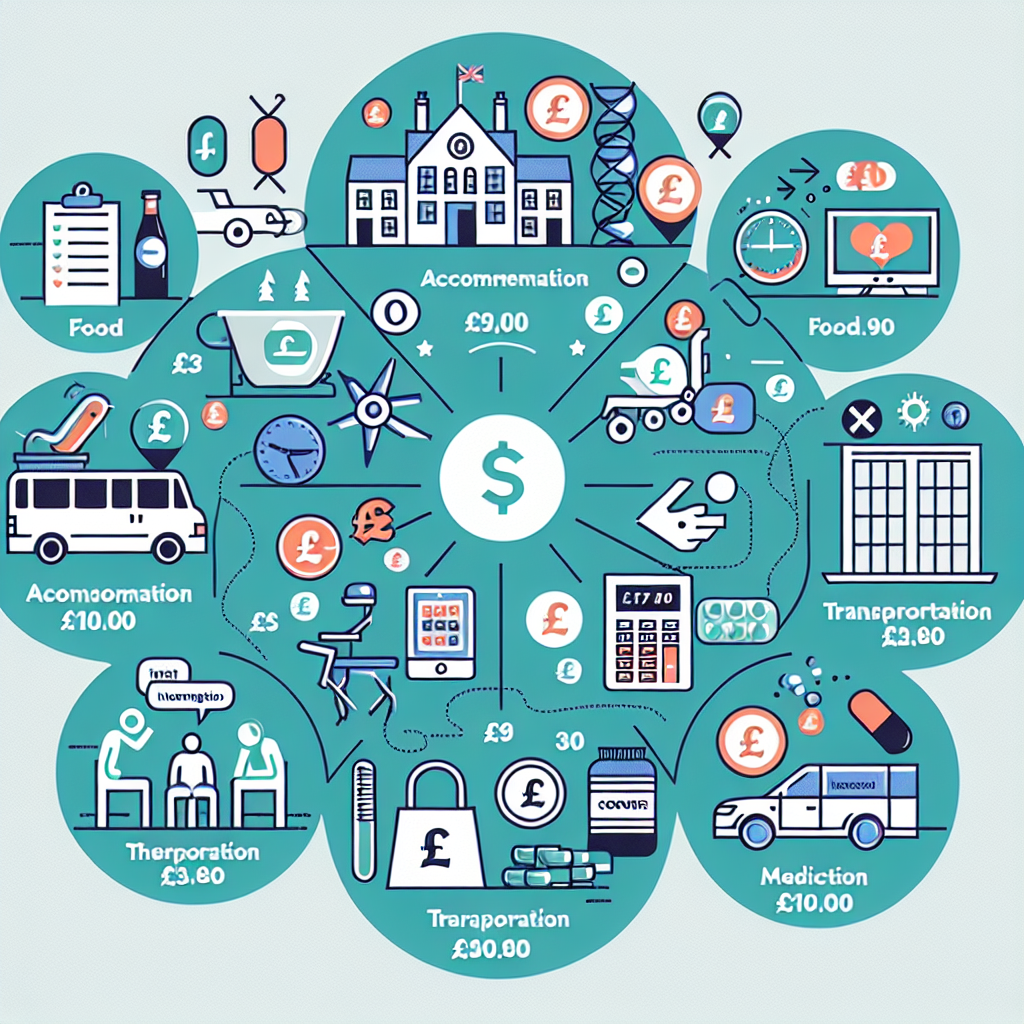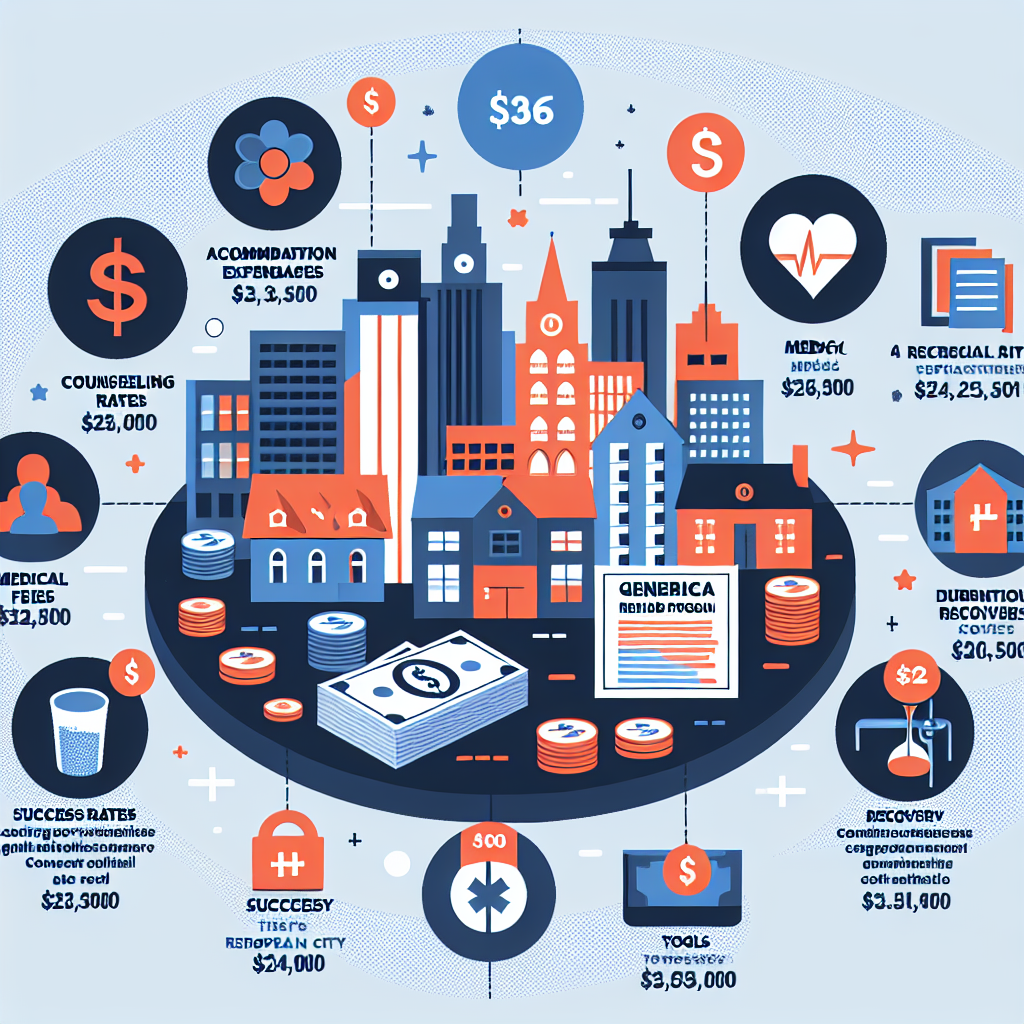-
Table of Contents

“Discover the True Costs of Rehab in Manchester: Your Path to Recovery Starts Here.”
Introduction
The costs of rehab in Manchester can vary widely depending on several factors, including the type of treatment program, the duration of the stay, the level of care required, and the specific facility chosen. Generally, rehab programs can be categorized into inpatient (residential) and outpatient services, each with its own pricing structure. Inpatient rehab, which involves staying at the facility for the duration of the treatment, tends to be more expensive due to the comprehensive care, accommodation, and amenities provided. Outpatient rehab, where patients attend treatment sessions but live at home, is typically less costly but may not offer the same level of intensive support. Additional factors influencing the cost include the presence of specialized therapies, the qualifications of the medical staff, and any supplementary services such as aftercare or holistic treatments. Understanding these variables can help individuals and families make informed decisions about the most suitable and affordable rehab options in Manchester.
Understanding the Financial Breakdown of Rehab Costs in Manchester
Understanding the financial breakdown of rehab costs in Manchester can be a crucial step for individuals and families seeking help for addiction. The journey to recovery is often fraught with emotional and psychological challenges, and the financial aspect can add another layer of complexity. However, understanding the costs involved can help demystify the process and make it more accessible.
Firstly, it is important to recognize that the cost of rehab can vary significantly depending on several factors. These include the type of treatment program, the duration of the stay, the level of care required, and the specific amenities offered by the facility. In Manchester, as in many other cities, there are both private and public options available, each with its own set of financial considerations.
Private rehab facilities in Manchester often come with a higher price tag, but they also offer a range of benefits that can make the investment worthwhile. These facilities typically provide a more personalized approach to treatment, with a higher staff-to-patient ratio, private rooms, and a variety of therapeutic options. The cost for a private rehab program can range from £5,000 to £30,000 per month, depending on the level of luxury and the specific services provided. While this may seem daunting, many facilities offer financing options or payment plans to help spread the cost over time.
On the other hand, public rehab options, often funded by the NHS or local charities, can be more affordable or even free. These programs are designed to be accessible to everyone, regardless of their financial situation. However, they may come with longer waiting times and fewer personalized services. The level of care is still high, but the experience may be less tailored to individual needs compared to private facilities.
In addition to the type of facility, the duration of the rehab program also plays a significant role in the overall cost. Short-term programs, typically lasting 28 to 30 days, are less expensive than long-term programs, which can last 60, 90 days, or even longer. While short-term programs can be effective, long-term programs often provide a more comprehensive approach to recovery, addressing not just the addiction but also the underlying issues that contribute to it.
Another factor to consider is the level of care required. Inpatient programs, where individuals stay at the facility full-time, are generally more expensive than outpatient programs, where individuals attend treatment sessions but continue to live at home. Inpatient programs offer a more immersive experience, with 24/7 support and a structured environment that can be crucial for those with severe addictions. Outpatient programs, while less intensive, offer greater flexibility and can be a good option for those with milder addictions or strong support systems at home.
Finally, it is worth noting that many rehab facilities in Manchester offer additional services that can enhance the recovery process but also add to the cost. These can include holistic therapies such as yoga, acupuncture, and art therapy, as well as aftercare programs designed to support individuals once they leave the facility. While these services are not essential, they can provide valuable tools for maintaining long-term sobriety.
In conclusion, understanding the financial breakdown of rehab costs in Manchester involves considering a range of factors, from the type of facility and duration of the program to the level of care required and additional services offered. While the costs can be significant, the investment in recovery is invaluable. With the right information and support, individuals and families can navigate the financial aspects of rehab and take the first step towards a healthier, more fulfilling life.
Comparing Public vs. Private Rehab Expenses in Manchester
When considering the costs of rehab in Manchester, it’s essential to understand the differences between public and private rehabilitation services. Both options offer unique benefits and challenges, and the choice between them can significantly impact one’s recovery journey. By comparing the expenses associated with public and private rehab, individuals and families can make informed decisions that best suit their needs and financial situations.
Public rehab services in Manchester are typically funded by the National Health Service (NHS), making them more accessible to those with limited financial resources. These programs often provide comprehensive care, including medical detoxification, counseling, and aftercare support. The primary advantage of public rehab is its affordability, as most services are either free or come at a minimal cost to the patient. This accessibility ensures that individuals from all walks of life have the opportunity to seek help and begin their recovery journey.
However, the lower cost of public rehab comes with certain trade-offs. One of the most significant challenges is the long waiting times, which can be a barrier for those in urgent need of treatment. Additionally, public rehab facilities may have limited resources and staff, leading to less personalized care and fewer amenities compared to private options. Despite these limitations, many individuals successfully recover through public rehab programs, thanks to the dedication and expertise of the healthcare professionals involved.
On the other hand, private rehab facilities in Manchester offer a different set of advantages and costs. These centers are typically funded through patient fees, which can be substantial. The higher cost of private rehab is often justified by the enhanced level of care and amenities provided. Private facilities usually offer shorter waiting times, allowing individuals to begin treatment promptly. Moreover, they often provide a more personalized approach to recovery, with tailored treatment plans and one-on-one counseling sessions.
The luxurious environment of many private rehab centers can also contribute to a more comfortable and stress-free recovery experience. Amenities such as private rooms, gourmet meals, and recreational activities can help individuals focus on their healing without the distractions and discomforts that may be present in public facilities. While the cost of private rehab can be a significant financial burden, many people find that the investment is worthwhile for the quality of care and the increased likelihood of a successful recovery.
In addition to the direct costs of rehab, it’s important to consider the long-term financial implications of addiction and recovery. Investing in a comprehensive and effective treatment program, whether public or private, can lead to significant savings in the long run. Successful recovery reduces the risk of relapse, which can be costly in terms of both healthcare expenses and lost productivity. Furthermore, overcoming addiction can improve overall quality of life, leading to better physical and mental health, stronger relationships, and increased career opportunities.
Ultimately, the choice between public and private rehab in Manchester depends on individual circumstances, including financial resources, the urgency of treatment, and personal preferences. Both options have their merits, and the most important factor is finding a program that aligns with one’s needs and goals. By carefully weighing the costs and benefits of each type of rehab, individuals can embark on a recovery journey that offers the best chance for lasting success and a brighter future.
Q&A
1. **Question:** What is the average cost of a 28-day residential rehab program in Manchester?
**Answer:** The average cost of a 28-day residential rehab program in Manchester typically ranges from £4,000 to £12,000.
2. **Question:** Are there any additional costs associated with rehab in Manchester beyond the initial program fee?
**Answer:** Yes, additional costs can include aftercare services, medication, and specialized therapies, which can vary depending on the facility and individual needs.
Conclusion
The costs of rehab in Manchester can vary widely depending on several factors, including the type of treatment program, the duration of the stay, the level of care required, and the specific facility chosen. On average, inpatient rehab programs can range from £1,000 to £5,000 per week, while outpatient programs may cost between £1,000 and £2,000 per month. Additional costs may include medical assessments, therapy sessions, and aftercare services. It is important for individuals seeking rehab to consider these factors and explore various options to find a program that fits their needs and budget.



